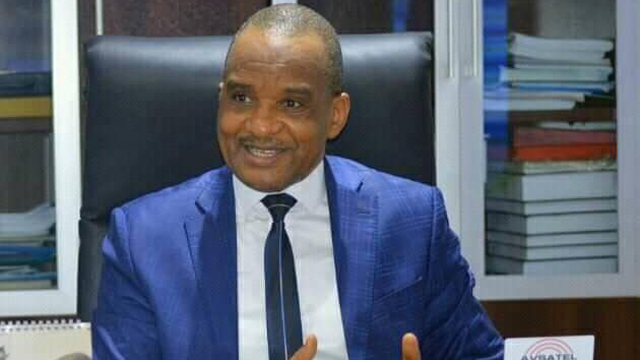
All over the world, critical infrastructures in the agricultural sector, manufacturing sector, power and steel, mining and exploration, and especially the transport sector are the major drivers of global trade both in volume and value. Of all the infrastructures you may refer to as critical for development, those of the transport sector, especially maritime transport is indispensable for global trade, logistics, and human existence.
The maritime sector in Nigeria plays host to a wide range of Nigeria’s critical infrastructures including but not limited to seaports and terminals, ships, oilrigs, Floating Production Storage and Offloading (FPSO), Floating Storage and Offloading (FSO). These infrastructures are all extremely important in divers ways.
For instance, seaports provide the vital interface between the various modes of transportation and primarily provide the facilities for the ingress and egress of ocean-going vessels that convey over 90% of Nigeria’s trade by volume. Evidently, without the port and its facilities, international trade and development would still be at its lowest ebb.
The Nigerian economy is import-oriented but also the biggest oil exporter in Africa. As critical infrastructures, ships are the vehicles for moving the highest volume of trade between any two nations. As a major oil-trading nation in the African continent, vessels of all types constitute critical infrastructures for the nation without which trade would be jeopardized given that Nigeria’s international cargo trade is facilitated mainly by sea carriage.
Of special attention are crude oil terminals, oils rigs and storage facilities located at offshore locations and the high seas. These facilities support oil exploration and production, which has been a major lifeline to Nigeria’s economy in the last 6 decades.
The most critical economic infrastructure in Nigeria today is in the oil and gas sector. According to available statistics, in 2019, the Nigerian National Petroleum Corporation (NNPC) announced that it lost ₦159 billion to oil theft and pipeline vandalism. The losses were put at $2.8 billion in 2018.
Despite Government’s significant investment of resources to secure the various oil platforms and production facilities, the activities of vandals, saboteurs and oil thieves have continued unabated. The need for concerted efforts by multiple stakeholders through Coordination, Collaboration, Cooperation and Communication on security priorities cannot be overemphasized if Nigeria is to stop the bleeding and reap the dividends of her most critical infrastructure.
Unfortunately, the security of these critical infrastructures had been precarious in the face of fierce violence from criminal elements within the maritime sector. Suffice it to say that an attempt at any of the critical maritime infrastructure is an attempt at the economic mainstay of Nigeria, or better considered as an act of war. Thus, a national discuss such as this is apt, timely, and inevitable to ensure Nigeria’s sustainable development. Definitely, the maritime security issues that Nigeria faces must be addressed in order for Nigeria’s economy to thrive.
The Nigerian Maritime Administration and safety agency is well aware of the current challenges the industry is facing as it relates to maritime safety and security and we have taken some bold steps in addressing the issues.
1. Last year, precisely June, 2021 with Mr. President in attendance, the Nigerian Maritime Administration and Safety Agency (NIMASA) launched the Deep Blue Project in close collaboration with the Nigerian armed forces including the Navy, Air Force, Army, and police. Others include the Department of State Services, the office of the national security adviser, the federal ministries of transportation and defense.
The project involves the procurement of intelligence and interdiction platforms as well as capacity building for the personnel that operates the platforms on land for the land platforms, at sea for the marine platforms, and in the air for the air platforms. The air platforms include 3 special mission helicopters, 2 special mission aircrafts and 16 unmanned air vehicles or drones. The sea assets include 2 special mission vessels with capabilities for prolonged stay at sea for intelligence gathering and sea surveillance, 17 fast-moving interceptor boats for emergency response and interdiction of criminal and piracy activities; on land, we have 16 intelligence armoured vehicles for coastal policing of critical infrastructure and deterrence of criminality in the creeks; the C4i Centre and human assets of over 600 personnel including well-trained fighting special mission units other support staff. The Deep Blue project is the first integrated maritime security strategy in West and Central Africa with the aim of tackling incidences of piracy, sea robbery and other crimes at sea.
2. Again, the implementation of the Suppression of Piracy and Other Maritime Offences (SPOMO) Act, signed into law by President Muhammadu Buhari in June 2019 has greatly helped to improve Nigeria’s image in the international community by producing a better appreciation of the country’s role and determination to end piracy and other maritime crimes in its territorial waters and the Gulf of Guinea. The law has, in no small measure aided our efforts to protect critical maritime infrastructures by providing the much-needed legal framework for the prosecution of maritime offenders which was lacking. So, by the conviction of over 20 maritime offenders with various degrees of jail terms and penalties, the law proved to be potent in deterring potential maritime offenders and criminals.
The above two areas reflect how committed NIMASA is to contribute her fair share in this collective quest to protect the nation’s critical infrastructure, monuments and business assets, especially within the maritime domain.
We at NIMASA, are poised to commit ourselves further in fighting maritime crimes and criminality using available laws and platforms for a business-friendly maritime environment. We shall continue to work with all relevant organizations both private and public to protect Nigeria’s critical infrastructures.
• Dr. Jamoh, Director-General and Chief Executive Officer of the Nigerian Maritime Administration and Safety Agency, writes exclusively for The Guardian



